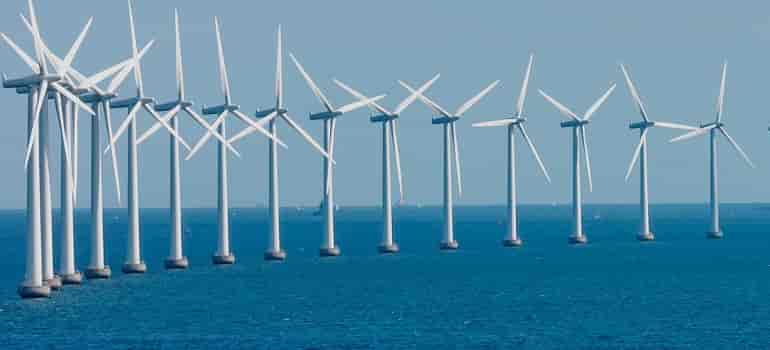
The Global Wind Energy Council together with the Vice-ministry of Energy and Environmental Quality (MINAE) of Ministry of Environment and Energy and Costa Rican Electricity Institute (ICE) have kicked off a joint initiative to build knowledge about the local benefits of offshore wind and explore pathways for its future development and growth in Costa Rica.
The closed-door workshop, which takes place on 1 and 2 September, brings together representatives from across the public and private sector and key stakeholders in Costa Rica, to enhance understanding of the scope of benefits, costs, and other challenges and opportunities for offshore wind development in the country.
With a total offshore wind technical potential of 14 GW, of which near of 1 GW is fixed-bottom offshore wind and 13 GW is floating offshore wind, Costa Rica has the potential to become a first mover for offshore wind in Central America. Building up an offshore wind industry could generate numerous local and regional socioeconomic benefits, from driving decarbonisation and providing affordable electricity, to sustainable job creation.
As an abundant, scalable, cost-competitive, and reliable source of renewable energy, offshore wind is an important pillar of the global energy transition and can play a key role in realising Costa Rica’s net-zero by 2050 target as outlined in the country’s National Decarbonisation Plan.
Ben Backwell, CEO of Global Wind Energy Council, says: “Costa Rica has been a leader in renewable energy and sustainability for years. Now it is time for the country to lead again by kick-starting the offshore wind sector in Central America. Tapping into Costa Rica’s offshore wind potential will help the country to cement its position as a decarbonisation pioneer of the region, while securing socioeconomic benefits for local communities and building a thriving local economy. We are pleased to work together with the Costa Rican Ministry of Environment and Energy and Costa Rican Electricity Institute on this important initiative to build the foundation for a thriving the future offshore wind industry in the country.”
Rolando Castro, Vice minister of Energy and Environmental Quality (MINAE), added: “Costa Rica is a small country in territory but big in commitment to the environmental future of the planet and has lofty sustainability goals with a running climate change policy, an economy decarbonization strategy, and a long promise to keep producing near of 99% of clean electricity from renewable sources. In the pursuit of sustainable development, energy access, energy security and low-carbon economic growth and prosperity, the country start to boost a non-conventional renewable energy portfolio with a road map on offshore wind energy. We know that ocean energy must overcome a number or challenges to prove the reliability, affordability and accessibility. Despite this, the offshore wind represents a source of plentiful energy potential, able to drive a blue economy and provide significant socio-economic opportunities, such as jobs creation, improved livelihoods, local value chains and enhanced synergies between coastal stakeholders. Thanks to all national and international experts who attended these workshops. We know that offshore wind is already enjoying exponential growth and represents a mid-term energy source that will generate national prosperity.
Kenneth Lobo, Director of Planning and Sustainability, ICE, says: During its 72 years of history, the Costa Rican Electricity Institute (ICE) has contributed to the development of Costa Rica bringing electricity and telecommunications services to all corners of the national territory with a focus on social welfare, environmental protection, and creation of economic value. In terms of electricity, ICE has shown vocation and responsibility by promoting the generation of electricity from renewable sources, low in greenhouse gas emissions and resilient to climate change, whilst incorporating energy security and sustainability criteria from the planning stages. Therefore, identifying and determining the energy potential available to the country is an ongoing task that aims to expand the portfolio of renewable energy projects. Following this direction and understanding the role that offshore wind energy could have in their different forms, ICE collaborates with academia, non-governmental organizations, and private industries to promote the development of research and training initiatives that assess the marine energies potential in the country.

